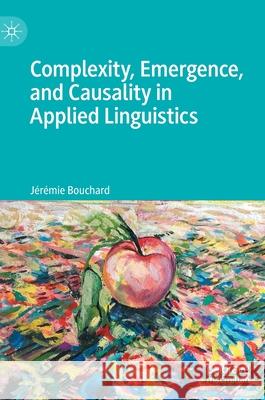Complexity, Emergence, and Causality in Applied Linguistics » książka
topmenu
Complexity, Emergence, and Causality in Applied Linguistics
ISBN-13: 9783030880316 / Angielski / Twarda / 2021 / 470 str.
Complexity, Emergence, and Causality in Applied Linguistics
ISBN-13: 9783030880316 / Angielski / Twarda / 2021 / 470 str.
cena 484,18
(netto: 461,12 VAT: 5%)
Najniższa cena z 30 dni: 462,63
(netto: 461,12 VAT: 5%)
Najniższa cena z 30 dni: 462,63
Termin realizacji zamówienia:
ok. 16-18 dni roboczych.
ok. 16-18 dni roboczych.
Darmowa dostawa!
Kategorie:
Kategorie BISAC:
Wydawca:
Springer Nature Switzerland AG
Język:
Angielski
ISBN-13:
9783030880316
Rok wydania:
2021
Ilość stron:
470
Waga:
0.76 kg
Wymiary:
21.01 x 14.81 x 3.02
Oprawa:
Twarda
Wolumenów:
01
Dodatkowe informacje:
Wydanie ilustrowane











